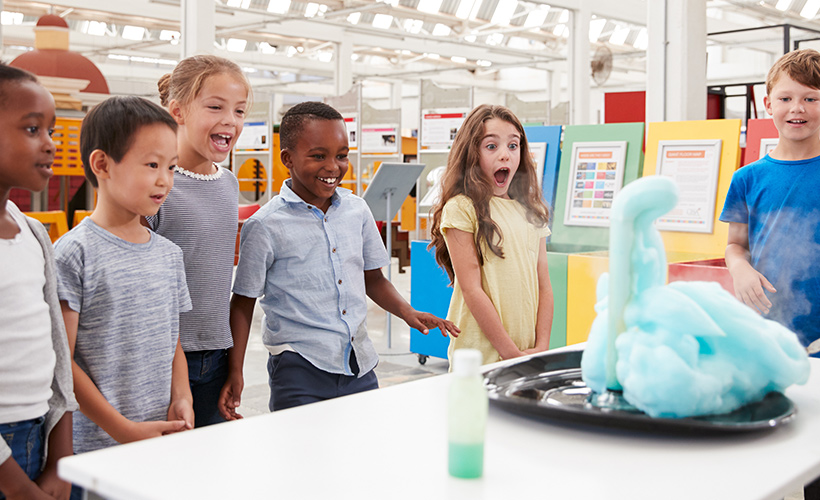Well, thank goodness. We have made it to summer. Sunshine! Flowers! Gardens to be tended. Long walks in the woods. Pool parties! When I think about all of my favorite things from childhood, summer encapsulates the height of joy. From the moment the last class ended in June until the beginning of September—that was my time to enjoy everything that the season had to offer.
My parents worked full time, so I had almost three months of unstructured romping around the neighborhood: visiting the local store for slushies, beach time, and endless dog walks whenever I pleased. It was all fun and games until school started up again, and I had a difficult time recalling any of the pivotal learning from the academic year prior. Even as a high-achieving student, it was clear that the things I thought I knew had floated off with the summer breeze.
I have noticed this similar learning loss over the summer as an educator. In the best case scenarios, we can revisit material to ensure that students have the best understanding of material in the beginning of the academic term. However, these are not necessarily the most conducive times for optimal learning and material retention. Students and their families are navigating a variety of environmental factors that continue to impact overall wellness—a pandemic, continued mass shootings in school environments, shifts in learning modalities, changes in routines, etc. Navigating continued trauma and instability in our everyday impacts identity and information integration—and the continued impacts on our collective nervous systems are astounding.
What We Can Do to Prevent Summer Learning Loss
There are concrete ways that parents, family members, and teachers can set youth up for success as they move through their summer off. We advocate for cost-effective, community-centered learning opportunities and experiences for a “summer on” for learning. What can we do? See below:

- Create a calendar and schedule a variety of learning opportunities for youth that focuses on a growth mindset
- What do they want to learn this summer? Why? How?
- Free learning opportunities include:
- Library memberships
- Local days at local museums
- Visiting a college or university nearby
- Online tours of art experiences
- Webinars for learning
- Attending music or plays in the park/community spaces
- Cooking with family members and friends
- Free walks in the neighborhood and taking photos or drawing plants to identify when returning home
- Develop and communicate clear expectations for the summer to create structure for returning to school in the fall
- For example:
- Reading one book a month from the library
- Practicing sitting down at the table for structured conversations or activities at 5–15 minute increments (as developmentally appropriate for youth… 1 minute per year of age)
- Practicing cooking with family members once a week (and empowering youth to ask questions and measure ingredients themselves)
- Going for at least three walks or engaging in physical activities/sports with friends
- For example:
- Take time away from screens for creativity
- Writing one paragraph a day to create a short story or comic
- Coloring sheets
- Creating an indoor/outdoor garden and tending to it
- Taking a photo a day for a summer journal
- Socialize with friends and family members
- Practicing problem-posing questions for curiosity
- “How was your day? What made it good/bad/fun?”
- “How are you feeling? What color does that make you think of?”
- “Tell me about one thing you noticed today. What was exciting or interesting about it?”
- Practicing problem-posing questions for curiosity
- If utilizing technology for communication (e-mail, text, messengers, etc.), agree to write in full sentences and practice communication for language development.
- This can be in multiple languages, as the importance is for communication and social engagement. Speak whatever languages are in your homespace.
These experiences to optimize learning and retention can be free, fun, and family/community centered. Family members do not have to spend money on learning opportunities, as the most important aspects of a summer on—not off—include making sure that there is social engagement and space for elasticity in applying and exploring learning.
Enjoy your season, all.
In solidarity,
hc lou (she/her/hers)
Resources:
- College of Education Faculty offers tips to prevent Summer Learning Loss
- 4 Ways Parents Can Prevent Summer Learning Loss
- How to Combat Summer Learning Loss
- Stop the Slide! Summer Learning Loss Prevention tips for 6–8 yrs
- College Freshman: How They’re Different and How We Can Support Them
- Trauma-Informed Care Packet
See also:


